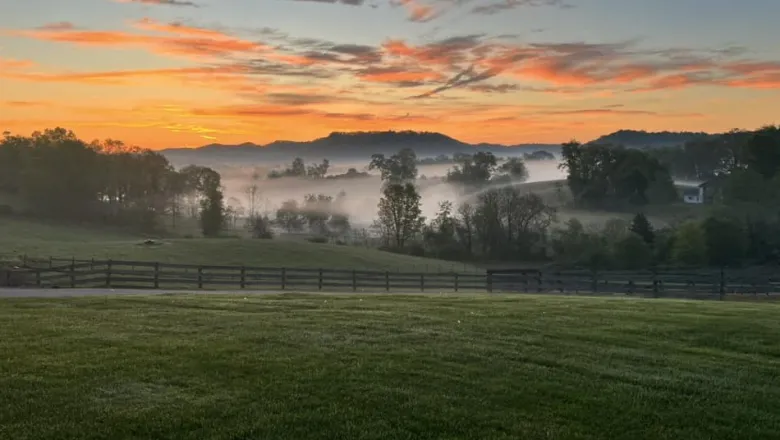Tips for Landing the Right Rural Property

Home & Land Financing
Dreaming of wide-open spaces, fresh air and a place to call your own in the country? Whether you're planning to build your forever home, start a hobby farm or simply invest in land, buying rural property is an exciting first step — but it comes with unique considerations. Before you lace up your boots and start touring properties, here are a few essential tips to consider to help you make a smart, informed decision.
Get the Lay of the Land
Before you fall in love with a property based on images and drone footage, take the time to explore it in person. Explore every corner to get a true sense of the land’s topography, vegetation, water sources, wildlife activity and any potential issues like erosion, flooding or access. This hands-on approach helps you determine whether the land fits your vision and intended use. Spending time on the land helps you envision how it will work for your lifestyle and reveals any red flags early on.
Does it 'Perc'?
If you plan to build a home or cabin, you’ll likely need a septic system, and that means the land must pass a percolation (perc) test. This test measures how quickly water drains through the soil, which determines whether a septic system can be safely installed. This information is essential in determining how well your land can handle a septic system, which most rural tracts require when they will be used residentially. The test is relatively simple and generally costs between $350 and $500 for smaller tracts. It could be more depending on the level of work required. If your test fails, you might consider paying to have a septic system specially designed by an engineer, if possible. Otherwise, odds are you’ll need to look for another property.
Know Your Boundaries
Knowing where your property ends and your neighbors’ property begins might seem pretty straightforward. But in some rural areas, the boundaries aren’t always clearly defined. You might need a property survey to make sure you know where your property lines are. This information would be essential if you are planning to build a fence or any other structure and could be required in some areas. The cost generally ranges from $1,000 to $4,500, depending on the complexity of the property, but having clearly defined boundaries could save you money in the long run.
What's it Worth?
Knowing the value of the land you plan to purchase can be tricky. Getting a land appraisal will give you an idea of what a fair price would be and most likely will be required by your lender. An appraiser will consider factors such as recent nearby land sales, property terrain and possible uses for the land when offering an opinion on its value. An appraisal typically averages around $450 but could run $1,000 or more for complex properties.
Think Long-Term
Beyond the basics, consider how the land will serve you in the years to come. Ask yourself:
- Will it be easy to maintain?
- Is there room to expand or build additional structures?
- Are utilities like electricity, water and internet accessible?
- What are the local taxes and land use regulations?
Thinking ahead can help you avoid surprises and ensure the property continues to meet your needs as they evolve.
Final Thoughts
Buying land is more than a transaction — it’s the foundation for your future. By doing your homework, asking the right questions, and walking the land with a critical eye, you’ll be better prepared to find a property that truly fits your vision.